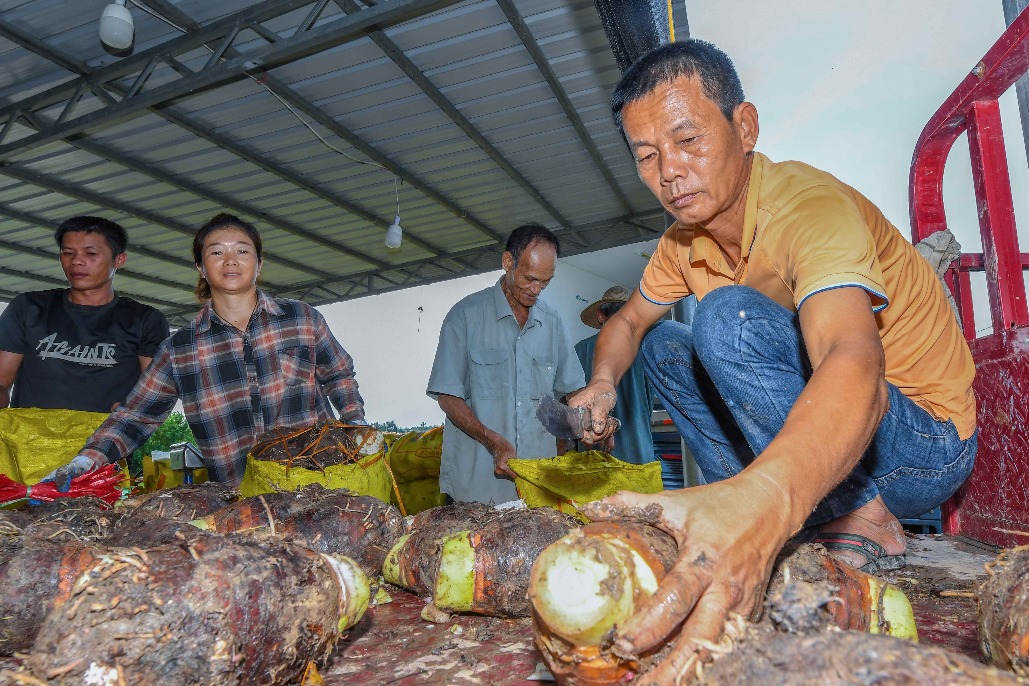China's common prosperity boon to world


BEIJING -- The phrase common prosperity has gained prominence this year, as China is determined to bring better lives to more people.
After winning the anti-poverty fight and completing the first centenary goal of building a moderately prosperous society in all respects, China now has favorable conditions for promoting common prosperity.
"China's level of economic development has reached a point at which all its citizens should be able to enjoy a reasonable standard of life," said John Ross, a British academic and senior fellow at Chongyang Institute for Financial Studies, Renmin University of China.
More tangible progress toward common prosperity has been listed as one of China's key long-term targets through 2035 when the country is expected to achieve basic modernization.
Neither polarization nor egalitarianism
China's vision for common prosperity is set against the backdrop of rising global inequality, with COVID-19 exposing the accelerated social ruptures in some economies.
"The yawning gap between rich and poor in some developed countries is one of the causes of social unrest. This is what China will try to avoid," said Quan Heng, an economist with the Shanghai Academy of Social Sciences.
However, common prosperity does not mean building an egalitarian or a welfare state. It is by no means robbing the rich to help the poor as misinterpreted by some Western observers.
Chinese authorities have stressed that dependence on welfare makes people lazy and unwilling to work, which takes a toll on their initiatives and creativity. Large-scale and continuous welfare spending increases the tax burden on enterprises and individuals.
"We should avoid falling into the trap of welfarism, and we will not encourage those trying to get something for nothing or provide for lazybones," said Han Wenxiu, a senior official with the Central Committee for Financial and Economic Affairs.
To realize common prosperity, the nation should first "make a bigger and better cake" through joint efforts of the people, and then divide and distribute the cake properly through rational institutional arrangements, read a statement released after the annual Central Economic Work Conference held earlier this month.
Concrete measures
Over the past few years, the Chinese government has pursued the common prosperity agenda with a series of reforms.
Important gateways to common prosperity include the adjustment of overly high incomes through channels such as taxes, more help for low-income groups through the provision of stronger public benefits and the expansion of the middle-income group.
China has also intensified efforts to crack down on monopolies, curbed the disorderly expansion of capital, reined in the red-hot housing market, and stepped up supervision of the entertainment and education sectors.
All such moves aim to promote the healthier and more sustainable development of the industries, Han said.
Meanwhile, China has adopted measures to reduce development gaps between wealthier and poorer areas, as well as between urban and rural regions, through economic upgrading and more investment in local businesses.
Echoing the government's call for common prosperity, big enterprises and business leaders in China have taken the initiative to share their profits for the common good by making donations and providing social supports to narrow income disparities.
Opportunities for all
For common prosperity, China aims to increase the size of middle-income groups and create an olive-shaped income pattern.
China's middle-income group has increased from over 100 million in 2010 to more than 400 million in 2019, accounting for about 30 percent of the total population.
Per capita disposable income rose from 19,109 yuan (about 3,004 U.S. dollars) in 2010 to 32,000 yuan in 2020, surging 67.46 percent during the decade.
With the advancement of common prosperity, the number of middle-income earners is expected to grow, creating enormous demand for high-quality products and services and thus presenting business opportunities for companies from the rest of the world.
"China's middle-income group is already transforming many sectors of the world economy. As China's population increases its income, it will become the most important consumer market in the world," John Ross said.
- Nation's health outcomes gain recognition
- Sichuan's ethnic festival attracts thousands of tourists
- SCO Digital Economy University Alliance launched
- Experience from a first-person perspective a sniper shooting from a boat
- Humble root crop becomes vital industry in Haikou village
- Sniper showdown on water: Realistic battlefield simulation





































